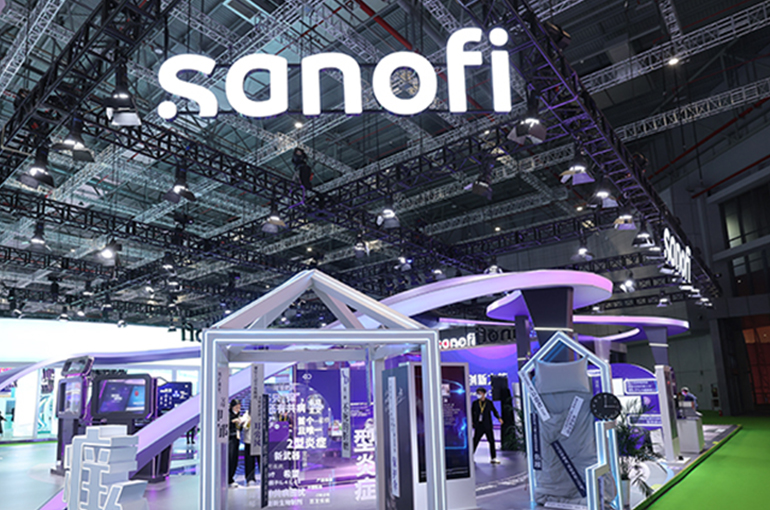 Sanofi Has Confidence in China’s Immunology Market, EVP Says
Sanofi Has Confidence in China’s Immunology Market, EVP Says(Yicai) July 17 -- Sanofi is confident about the future of China’s biopharmaceutical industry, and especially the field of immunology, Olivier Charmeil, executive vice president of the French pharmaceutical giant, said in an interview with Yicai.
Sanofi is building a broad "immunology map" that not only covers diseases directly related to the immune system based on the traditional understanding but also deeply traces the important role that the system plays in a variety of diseases, Charmeil said. Among them, type 1 diabetes and transplantation are important pillars of the map, pointing to huge unmet medical needs, he added.
The Paris-headquartered company announced recently that Teplizumab, a pioneering medicine that addresses the actual cause of type 1 diabetes, has been approved for pilot use in China's Hainan Boao Lecheng International Medical Tourism Pilot Zone to delay the progression of the autoimmune disease in people aged eight and above. The southern special zone allows testing drugs and medical devices that have not yet received marketwide approval in order to advance innovation.
It is very important to move the threshold of type 1 diabetes prevention and treatment forward, and Teplizumab shows its significance in delaying the onset of type 1 diabetes and filling a clinical gap, which is a breakthrough in the field of diabetes, the expert in general medicines said. To open up the market, Sanofi is also exploring how to promote diagnostic and treatment protocols.
During Charmeil's last trip to China in March, Sanofi signed a memorandum of strategic cooperation with the Peking University Institute of Hematology to support the standardization of stem cell transplantation and process management in China, involving quality control and research.
Sanofi remains optimistic about market prospects.
Last year, 12 innovative products developed by Sanofi were approved in China, which is unprecedented, according to the EVP. The firm achieved its five-year goal of introducing 25 innovative products and indications in China by 2025, two years ahead of schedule.
Thanks to China’s innovation support, incentives to attract foreign investment, and strategic regional development plans, Sanofi is exploring multiple models to accelerate its pilots of innovative products to let Chinese patients benefit from them earlier and faster, Charmeil said.
Sanofi has rapidly expanded its business in China thanks to the friendly business environment and promising growth opportunities provided by Shanghai and the nationwide market, Charmeil said. The firm has been in China for more than 40 years, and its Chinese headquarters is located in Shanghai.
China is Sanofi’s second-largest market. Last year, Sanofi’s local sales tallied EUR2.9 billion (USD3.2 billion). In the first quarter of this year, the figure was EUR757 million (USD827.5 million), up 6 percent from a year earlier.
Editor: Emmi Laine